|
Eddie Maisonet is an afroboricua nonbinary interdisciplinary storyteller, teaching artist, and facilitator who is currently studying to become a dog trainer. Born and bred in Boston, he writes a lot about his complicated little city. He centers themes of wellness, disability, joy, collectivity, humor, and family inheritances.
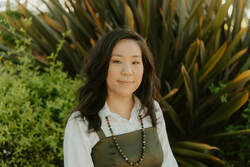 Tiffany Babb is an essayist, cultural critic, and poet. She's a regular contributor to The AV Club's Comic Panel and the Eisner Award winning PanelxPanel Magazine. You can follow her on twitter @explodingarrow and sign up for her monthly newsletter about art at tiffanybabb.com/puttingittogether.
Why do you write? What compels you to write? I don’t know what compels me to write more than the fact that I find writing compelling. I kind of picture my mind as those old film projectors. Once you get the crank going, it’s just ready to go at 24 frames a second. I guess that’s how my mind works, always in response to some stimulus. I don’t think I could start anything on my own. Everything I write is in response to something, whether I’m working on cultural criticism or a poem. I don’t think I’m particularly creative at all. I just write about what comes to my mind when I see things. Luckily, that stuff is not what a lot of other people see. What upcoming writing projects are you working on? I’m at the tail end of multiple projects right now, which is a funny place to be emotionally because it tends to be when spanners get tossed into things. I’m finishing up revisions on my first book of poems which will hopefully make its way out into the world in the next year or two. I’m also finishing up a monograph on the structure of superhero stories which will (all things going well) launch with a few other books of comics criticism on Kickstarter over at PanelxPanel Magazine later on this year. What are some of your artistic influences/inspirations? Ah, this is when I get to talk about E.B. White. As an essayist, I don’t think there is a higher standard to hold oneself to. White could cover strikingly different topics and never stumbled at hitting what was truly important about his subject (“Death of a Pig” and “Goodbye to Forty-Eight Street” are great examples of this). He was an essayist with an enormous capacity for empathy for everyone and everything and keen sense for how people might use fear to marginalize others (his writings on WWII and school prayer really speak to this). I don’t know if I’ve ever related to or truly “felt” a writer more. As for poets, I love Kaveh Akbar, Solmaz Sharif, Sam Sax, and Ocean Vuong. Mary Ann Thomas is the queer brown daughter of Indian immigrant parents, an ICU nurse, bike tourist, and writer. They have bicycled over 10,000 miles across Turtle Island and India. They are working on their travel memoir about biking across India towards homeland, queerness, and sobriety.
Why do you write? What compels you to write? Care is at the heart of everything I do: as an ICU nurse, as a switch whose greatest erotic fulfilment is caring for others in both sexual and non-sexual ways, as a friend, and as a writer. Writing is a profound act of care in that I can care for younger versions of myself by writing through traumatic, and joyous, life experiences, I can create a new world by speaking it into existence, and I can document my own survival and the communities I am apart of, along the lines of Mia Mingus's words on Leaving Evidence. What upcoming writing projects are you working on? I've written a travel memoir about bicycling across India towards homeland, sobriety, and queerness, and am currently seeking publication. Writing this manuscript required I step into my ancestral wounds - around migration, sexual trauma, and relationship to land - and truly led me into my purpose, which I now see as healing relationship with the land and creating community around the healing land trauma, as defined as the multiple ways in which humans are severed from land. This can include indigenous genocide, migration, physical traumas humans enact on land like deforestation and mining, and the traumas humans experience from the land, like earthquakes and hurricanes. This year, I'm offering a course called "Intro to Land Trauma," which serves as a beginning point for someone to interrogate their own land trauma, heal through body- and land-based practices, and cultivate a reciprocal relationship with the earth. It's going on right now and will be offered again in May, and then again in September. I'm also running the Land as Pleasure Workshop Series, which will feature conversations and workshops with close friends who have been healing the land trauma in their bodies and their lineage. I'm also excited about a smaller-scale, more intimate project, which is writing about my nursing life. I've always been scared to write about nursing - for ethical and legal issues at the bare minimum - but this pandemic has taught me to honor myself and the care work I provide in a way that I hadn't before. I'm sending out a monthly newsletter which will include unpolished writing from my nurse life, in a somewhat genreless form. What are some of your artistic influences/inspirations? Around care work and healing land trauma, I look to the work of Amber Hollibaugh, Che Che Luna, Staci Haines, Resmaa Menakem, Dr. Robin Wall Kimmerer, Dr. Kim Tallbear, and Dr. Anna Lowenhaupt Tsing. My artistic work is always inspired by, and in conversation with, disability justice organizers, indigenous creators, immigrant artists, and both my queer and trans ancestors and the blood ancestors I am descended from. Alex Jennings’ writing has appeared in The Hunger Journal, The Peauxdunque Review, and Obsidian. His novel, The Ballad of Perilous Graves will be released in 2022. Born in Germany, he trotted the globe until settling in New Orleans. In the Before Times, he MCed a literary readings series called Dogfish. Alas.
Why do you write? What compels you to write? I'm compelled to write by the child I was. Growing up Black, Queer, misunderstood sometimes made me feel like the last kid on earth, so I write the stories that kid needed and were so hard to find: Fantasy, Science Fiction, and Horror where the characters look like him, where the protagonists who triumped, perished, or merely survived thought like him, loved like him. I'm also inspired by my city, New Orleans. Moving here offered me a different perspective of Blackness, and how Black music and creativity have shaped the world. What upcoming writing projects are you working on? Right now, my main focus is getting The Ballad of Perilous Graves ready for publication in 2022. I'm also working on a graphic novel project called God of the Depths, and a short story currently called "Them Doghead Boys." That one is a horror/noir piece set in my real-life neighborhood and using the legend of the rougarou. I think it represents a fascinating shift in my own voice and expression. Describe your work in five words: Speculative, queer, Black, Black, and Black. What are some of your artistic influences/inspirations? Octavia Butler is one of the biggest. Nisi Shawl, Sheree Renee Thomas, Champion Jack Dupree, James Booker, Ladee Hubbard, and Victor Lavalle. A.M. Rosales is a multidisciplinary artist, writer and translator from Cochabamba, Bolivia. They are a collaborating artist at the Portland Institute for Contemporary Art and an MFA candidate at Portland State University; their work has been supported by the Precipice Fund and the Andy Warhol Foundation for the Visual Arts.
Why do you write? What compels you to write? I write because I am angry. Writing was not something I necessarily wanted to do. It’s never been a childhood dream or aspirational job. There’s a million more useful things you can do with your life besides being a writer including being a teacher, a counselor, or a social worker. But I felt an obligation to speak from my positionality in the world; I discovered that I had things to say. I write because so much of what I find out there is underwhelming or doesn’t speak to me because so many writers lie about the world as I know to be—they lie about its manifold complexity—or worse, they debase it. Someone has to put forth alternative narratives, so I figured that someone might as well be me. Let me try. What upcoming writing projects are you working on? Oof! I work in a lot of disciplines. Right now, my priority is a collection of short stories centered on the lives of trans young adults and gender-diverse children. A full draft of the manuscript should be ready by next summer (that’s my focus right now). I am also translating a Bolivian novel from the 1960’s from Spanish to English. I am a little more than half-way through it. It’s a labor of love; most Bolivian literature doesn’t get read outside of Bolivia. I am also working on a collection of essays (excerpt included) although it’s still early in the process so I don’t entirely know where I am going with them yet. I also serve as artistic co-director of Acción Poética Portland a collective project at the intersection of poetry, visual art, and social practice—but the pandemic has put a damper on the public facing component of that venture. For the time being, we are on hold, hoping to regroup when it is safe to participate in large gatherings again. I’m always looking for new projects and collaborations, too. Describe your work in five words Queer Sincere Irreverent Direct Hopeful Arisa White is an assistant professor of creative writing at Colby College and a Cave Canem fellow. She is the author of Who’s Your Daddy (Augury Books 2021), co-editor of Home Is Where You Queer Your Heart (Foglifter Press 2021), and co-author of Biddy Mason Speaks Up (Heyday Books 2019), winner of the 2020 Maine Literary Award for Young People’s Literature. She serves on the board of directors for Foglifter and Nomadic Press. arisawhite.com
Artist Statement I’m writing with the future at my back, and beauty is a scar on my poems. Each poem is an unlearning and learning again, the symmetry and asymmetry of things collaging their experiences, shapes, and forms to create a moment of pause—a stillness that allows us to account more deeply for our existence. With poetry, I create those moments of afterlife, of attentiveness, of provocation where people are reawakened to their senses. Where they embody the power of language—to truth and tell, to bridge and voice, to agitate what makes us numb and separated, to reclaim our belonging. In my teaching, I call on this wild-water beauty to facilitate the flow of creativity already present in us all, so we remember and practice being a force that contributes to the making of our world. So we embrace our abilities to be resourceful and generative, communal and a single drop. I’m doing this for the record, living the poetry of my life. Poet E Spoken is an explosive freestyle artist, History Teacher, Co-host of VENT an online literary Empathy Circle, and My Word Open Mic. She released her 1st CD entitled “Every Knee” in 2019. Her book Cried Out Laughing is due out later this year.
Artist Statement Who is Poet E. Spoken (Elaine C. Brown)? She's a writer, a mother, an activist, and teacher. She grew up in Brooklyn New York on the sounds, history, and the teachings of her family especially from her mother Joan Starks (Vintage). She exposed her to the arts, True History, and taught her how to cultivate her voice through writing and protests starting at the age of 3. Poet E. Spoken has a B.S in History and Secondary Education. She combines Freestyle Poetry with History to get people, especially the youth, to understand what's going on in this world today in order to change their mindsets. Her voice and words flow like water on topics of sexual abuse, violence, racism, or anykind of ism in order to heal.... Maxine David has performed slam poetry in Portland, Eugene, and Berkeley and writes both prose and poetry. Maxine is currently based in Berkeley, CA.
Why do you write? What compels you to write? You have to find ways to work through questions in your life (what does it mean to love certain people; what does harm leave in its aftermath; why am I like this, etc.), and writing ended up being something that allowed me to do that work. Language is navigation, and I feel perpetually lost. Both literally and emotionally. What are some of your artistic influences/inspirations? Mitski, one of my favorite musicians, can convey so much emotion and story with a few words in her songwriting. For poetry, Safia Elhillo writes stunning work, but specifically her imagery and syntax inspire me. As for prose, Zadie Smith’s novels showcase incredible, thought-out character studies. I could go on listing inspirational work forever. Describe your work in five words. Sad, languorous gay yearning Shelley Wong is the author of As She Appears (YesYes Books, 2022), winner of the 2019 Pamet River Prize, and the chapbook RARE BIRDS (Diode Editions). She is an affiliate artist at Headlands Center for the Arts and has received fellowships from MacDowell, Kundiman, and Vermont Studio Center.
Why do you write? What compels you to write? I write to learn what I know and rethink, going further and taking off. Stanza is Italian for room, so poems have doors, entrances and exits, and can be houses to build, dwell in, or move on from. As a young person, I felt lonely searching for poets and poems with the power to affirm who I was and wanted to become. Now, it is a joy to be part of a beautiful queer POC community of poets and discover our lineage. I write to recognize myself in my speakers and center queer women on their own terms, being of and not merely against. What upcoming writing projects are you working on? Due to the pandemic and its related stressors, my press is pushing my book publication to 2022, which gives me some time to breathe and self-care before going through the editorial process next year. For the remainder of 2020, I am focusing on a family history project in relation to the Bay Area, including site-specific meditations and explorations in the Headlands, where I have a precious writing studio at Headlands Center of the Arts. Describe your work in five words Gathering, leaping, breaking the silence. My name’s Javier Kennedy Gutierrez and I’m a trans Chicanx man. Born and raised in California, I moved to the east coast at 18 and started my life as a serious artist. I’ve been living in San Francisco for 13 years now, continuing my passion to grow as a writer.
Why do you write? What compels you to write? I want to be heard. I think growing up in the Central Valley of California gives you this type of underdog attitude. So much is misunderstood about that part of the state and I really believe that translates into the people. That on top of being trans and queer has really driven me to be louder about my experiences. Writing helps me feel seen as a complex being even if the subject matter isn’t explicitly about myself. What are some of your artistic influences/inspirations? Music and colors are my biggest influences. I’ll hear a song and a specific color palette will come to mind that invokes a feeling and I’ll just go from there. That’s how my fiction work comes to be. As for my poetry, Anne Sexton is by far my biggest influence. I discovered her in high school and instantly connected to her style. What upcoming writing projects are you working on? I’m currently working on a noir fiction piece that I’m really excited about! It’s set in San Francisco’s Chinatown during WW2 and is centered around a gay interracial love affair between a white homocide detective and a Chinese bartender. This project has been really satisfying for me not just in a creative way, but I’m also a huge history lover, so doing the research around queer Chinatown has been a lot of fun. |
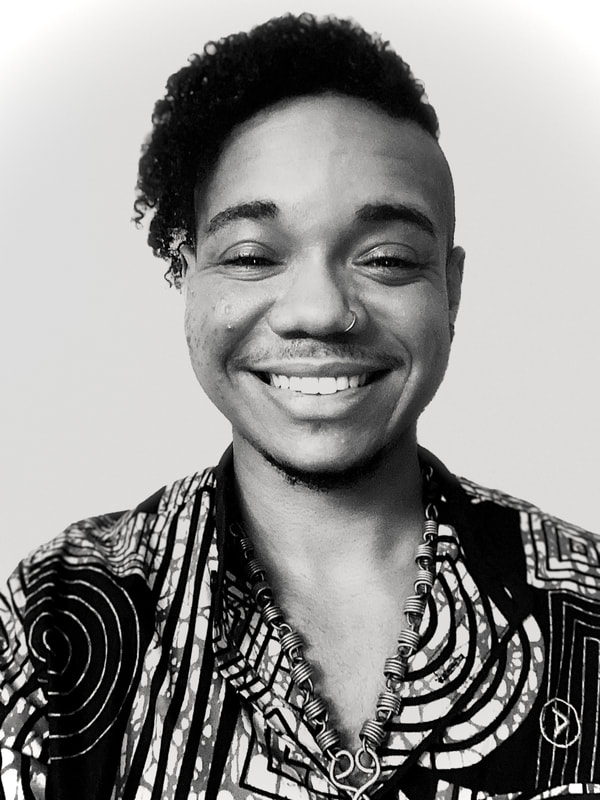
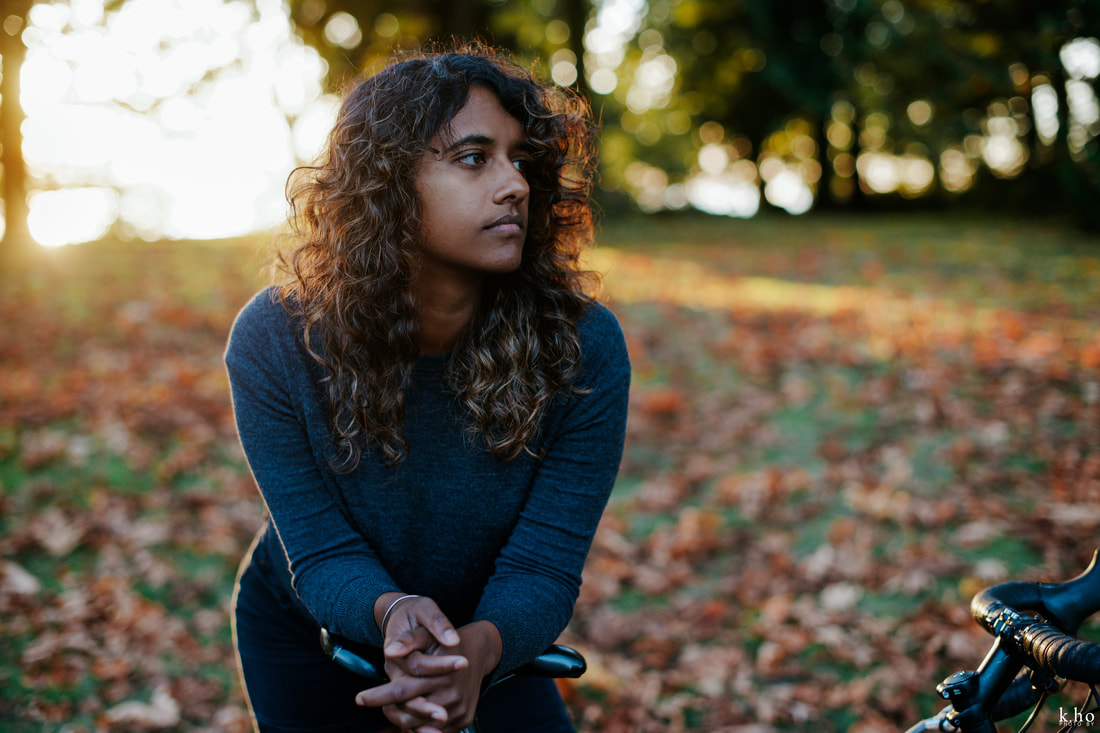
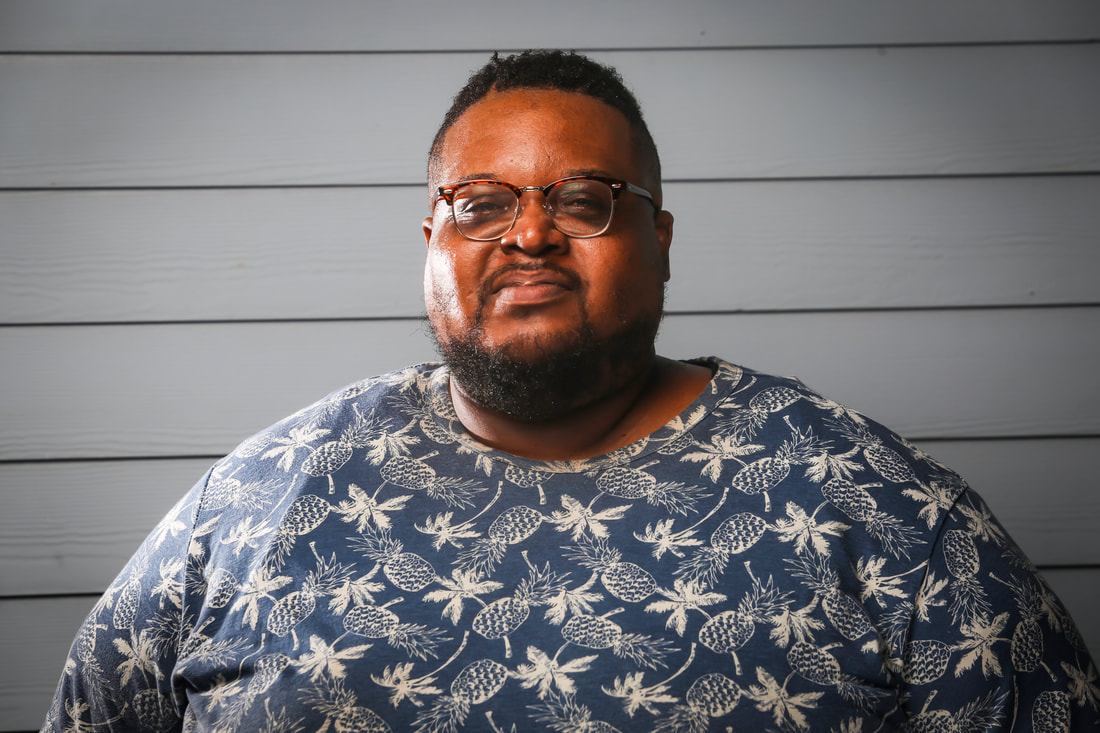
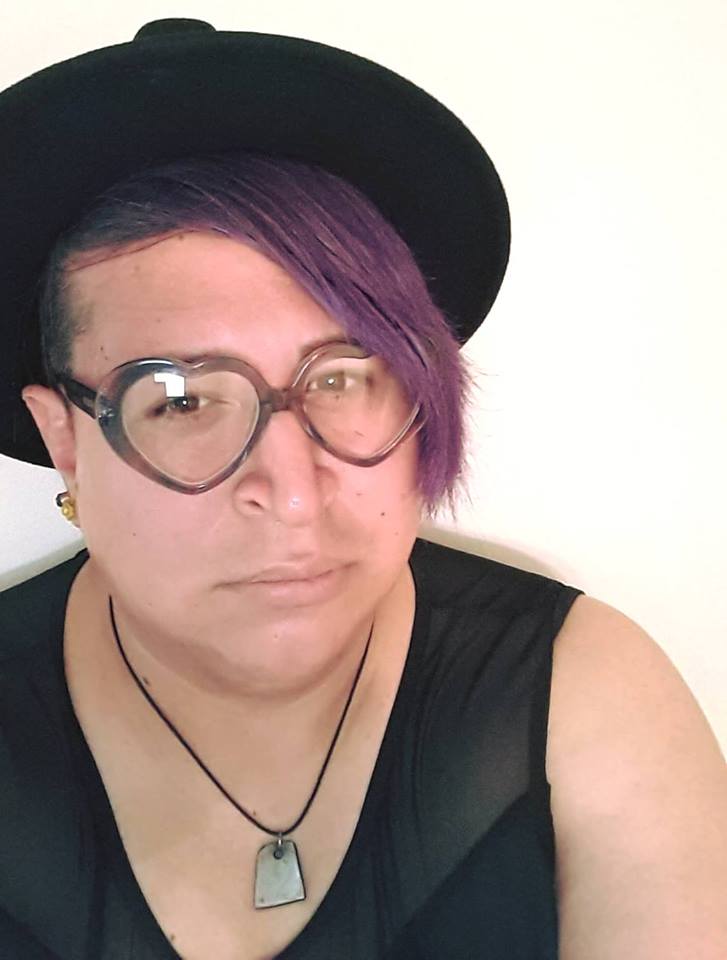
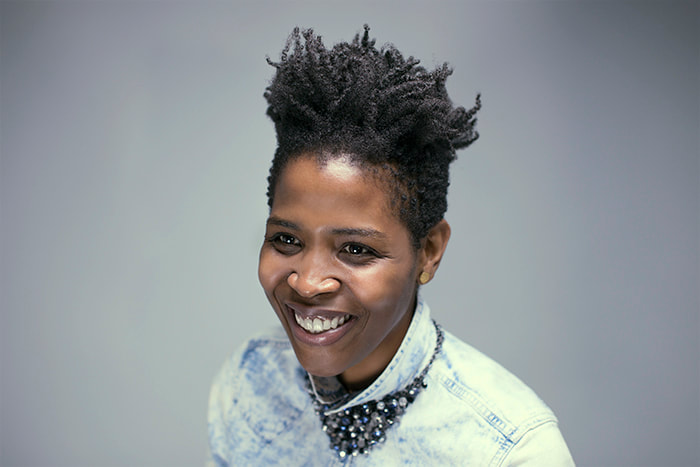
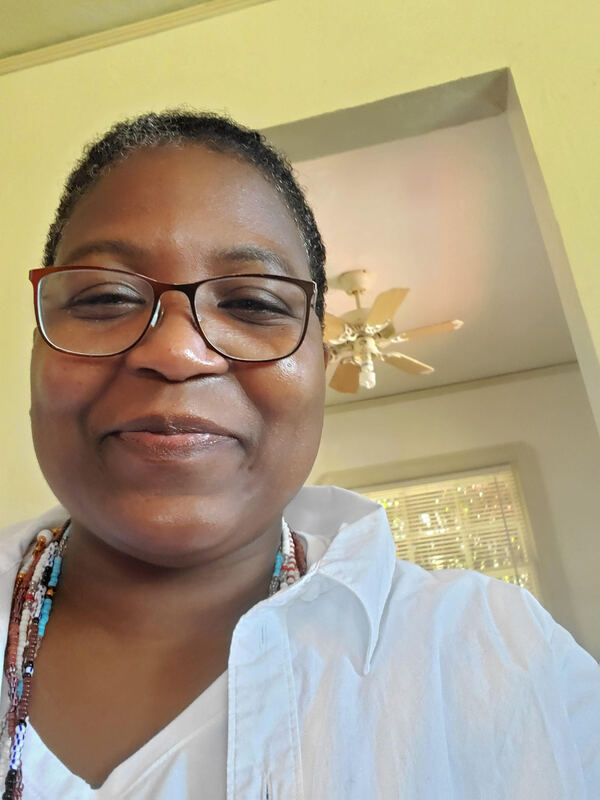
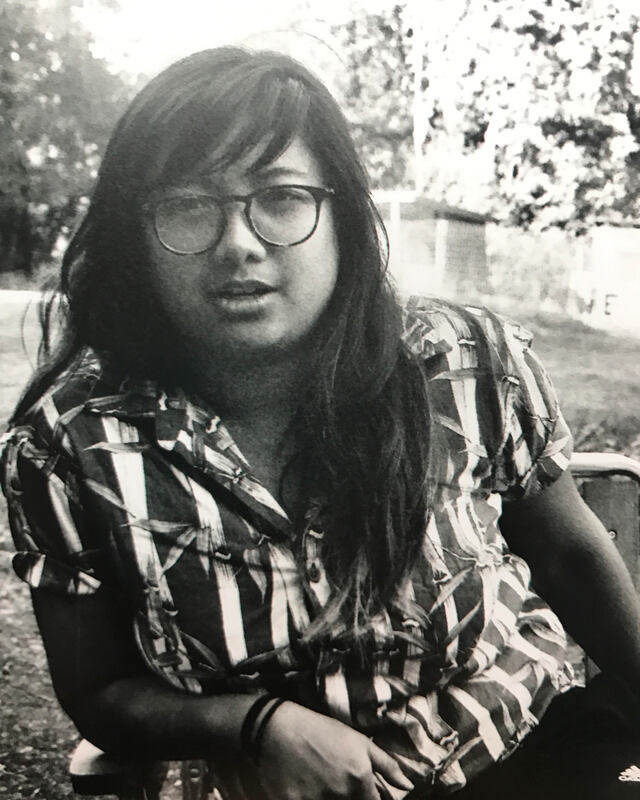
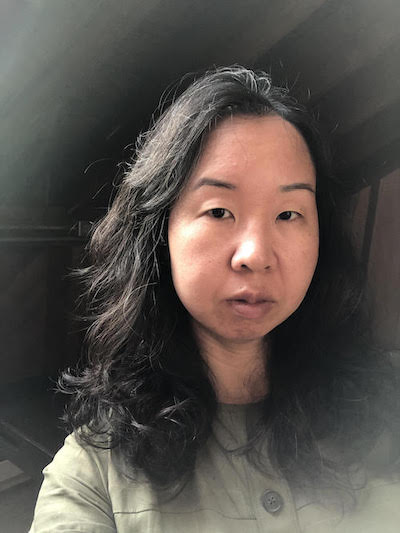
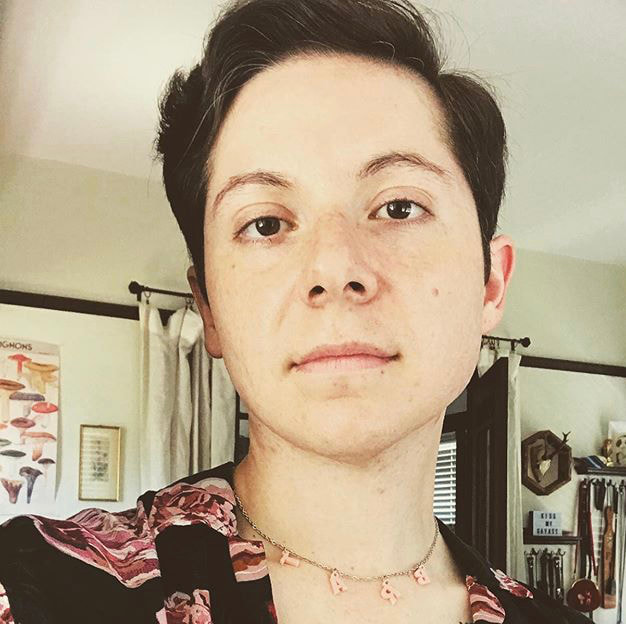
 RSS Feed
RSS Feed